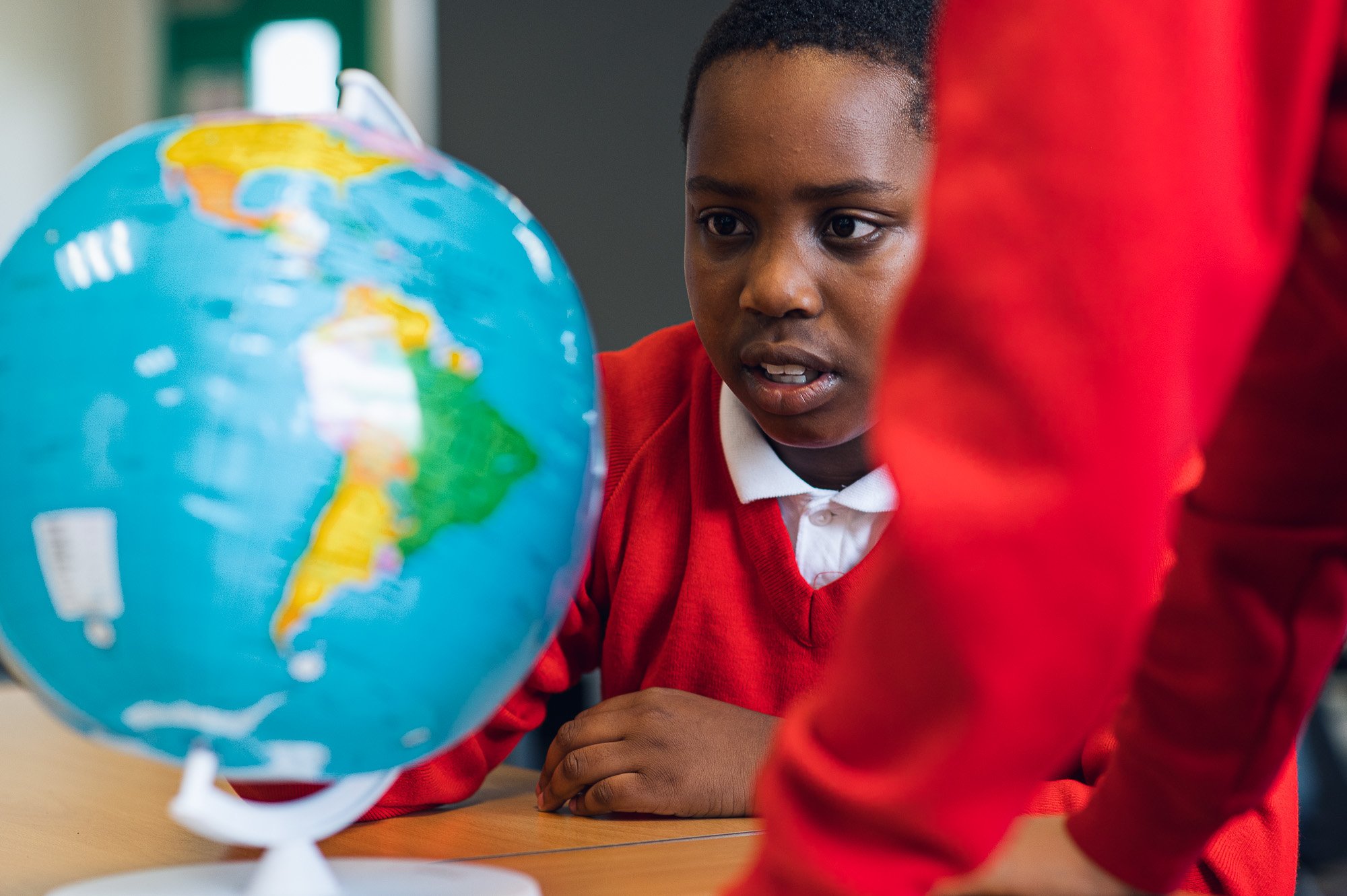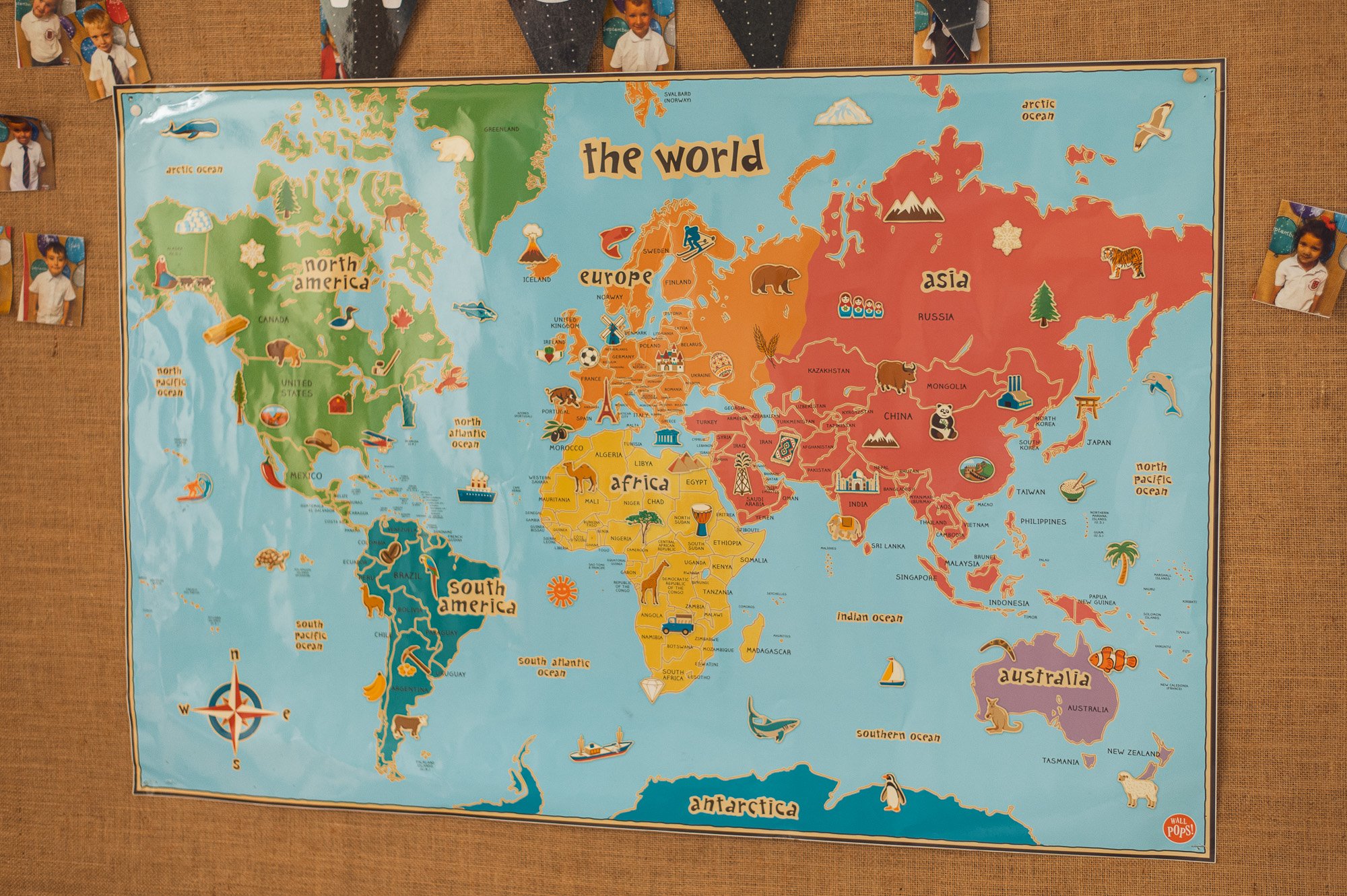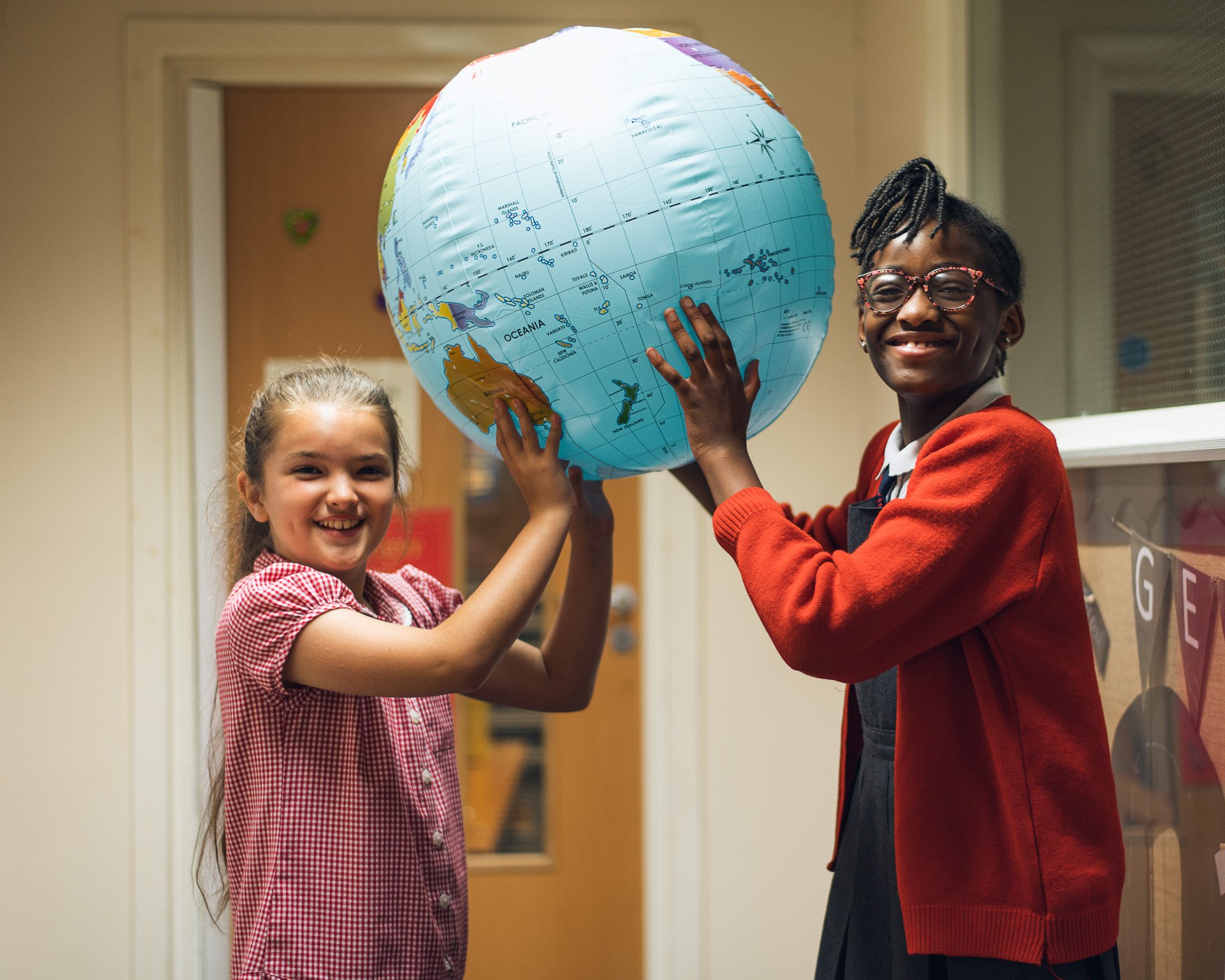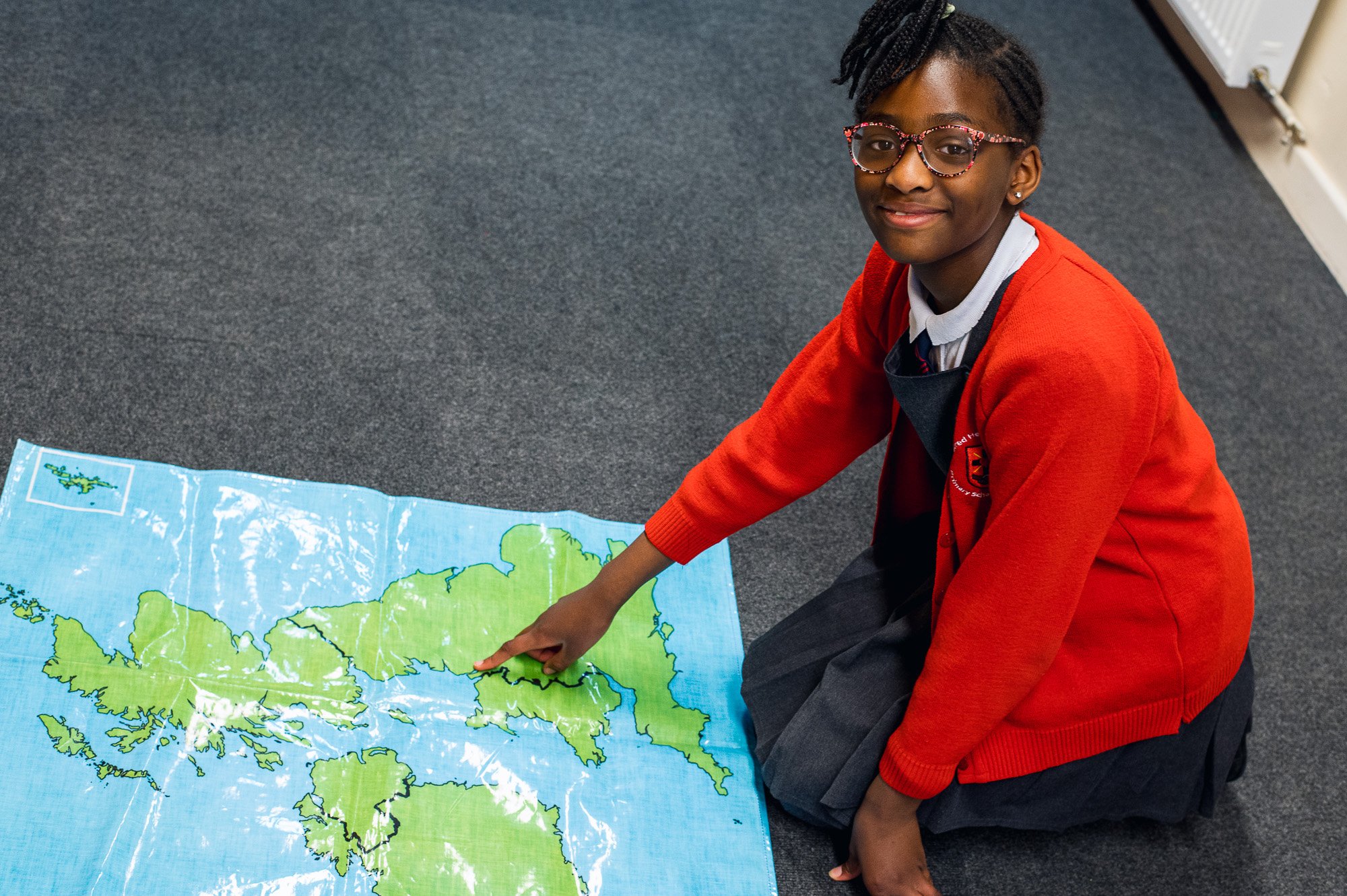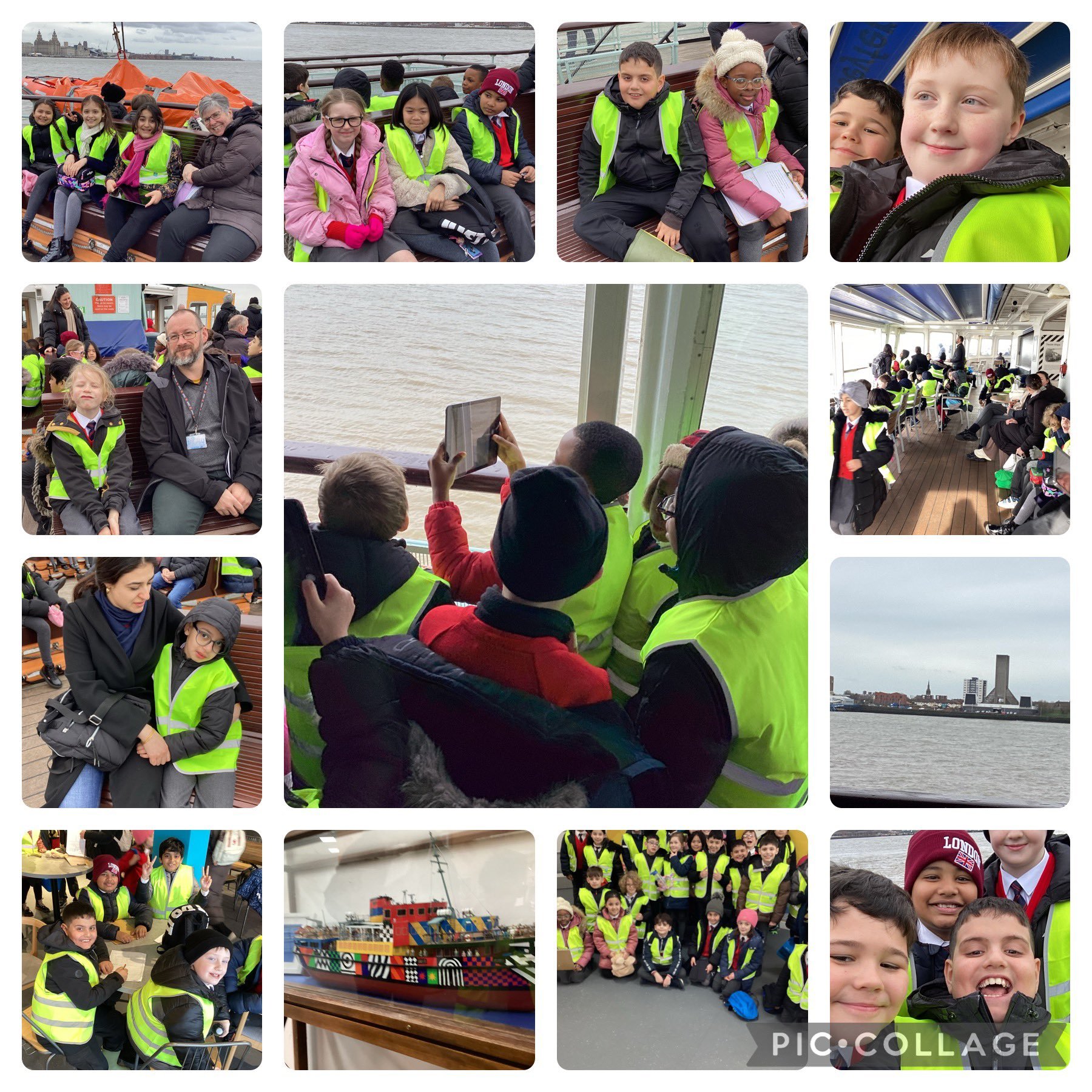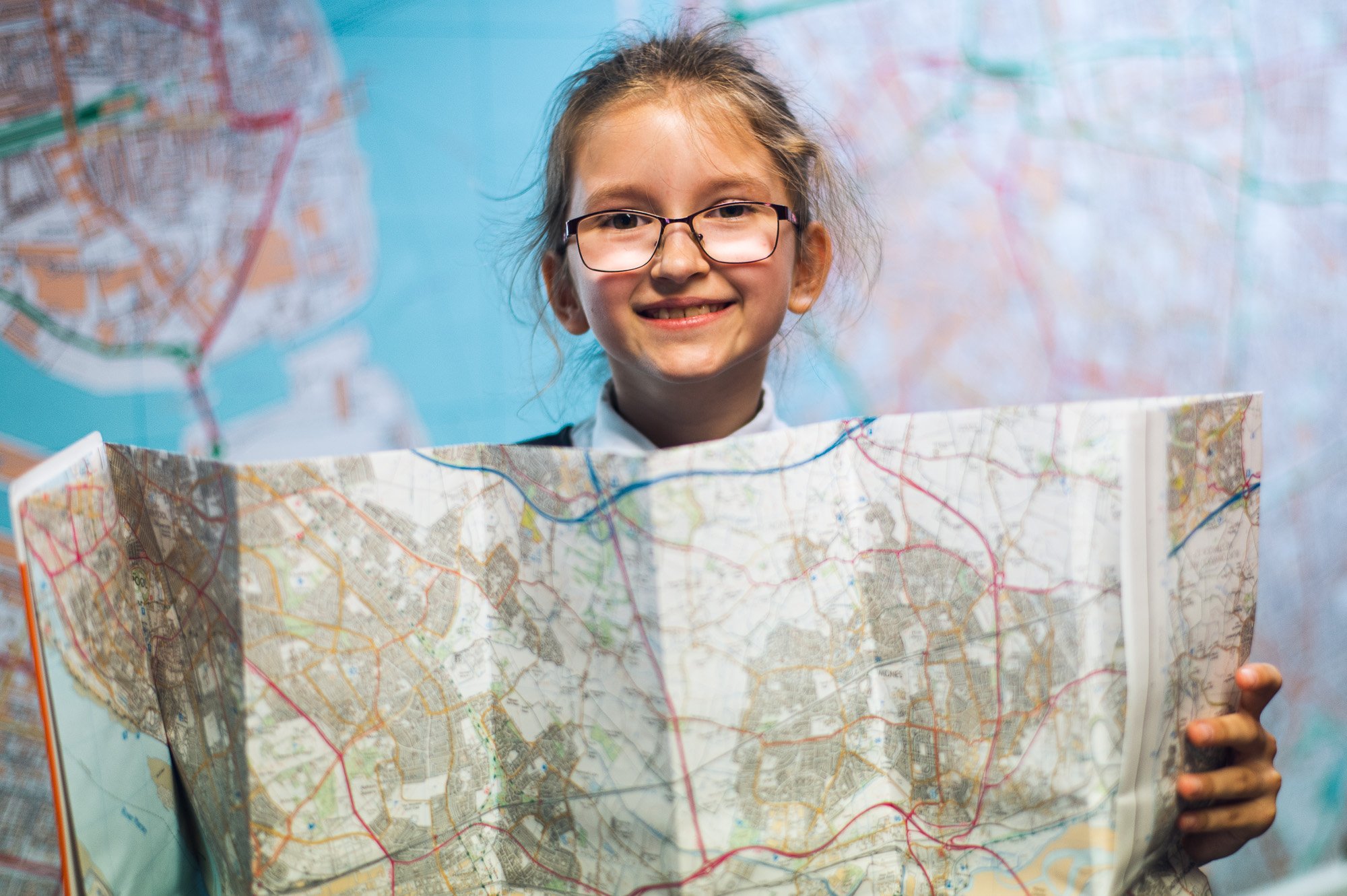
Geography
Geography
at Sacred Heart Primary School
Intent
At Sacred Heart Catholic Primary School we aim to provide our children with a geography education that prepares them to leave Sacred Heart as inquisitive, resilient, empathetic citizens ready for the next learning phase. Children who are ambitious and recognise the positive impact that geography has in every aspect of daily life and how they can use Geography or go on to have a successful career. We will ensure our children are proud of who they are, are secure in their understanding and know how what they can achieve through developing their geographic knowledge and skills.
Our geography curriculum will provide a platform for our children to work independently and collaborate with their peers, exploring a range of environments and localities. It will encourage our children to respect their own local area here in Liverpool – the city, the docks, the Mersey River and Crosby beach as well as exploring the wider world - through high quality teaching and learning experiences, both in and out of the classroom. This foundation will ensure our children develop their understanding of the interaction between the human and physical aspects of geography. We will ensure that every pupil will make excellent progress within Geography.
High expectations underpin our children’s learning. Promoting the development of their geographic skills. language and vocabulary will strengthen their learning and allow children to explore at a deeper level, articulate their learning and to develop their geography subject knowledge through the application and refinement of a wide range of enquiry, fieldwork and map work skills.
Kapow Primary’s Geography curriculum is designed to:
Develop children’s geographic knowledge and skills.
Develop inquisitive individuals who collaborate and co-operate and can solve problems, seeing failure as an opportunity to learn.
Develop pupils who care about and respect the world around them.
Ensure pupils have high aspirations and develop a love of geography.
Develop children to be proud of who they are and what they do and their local area.
Give equal opportunities – removing barriers to learning in geography, regardless of starting points.
Kapow Primary’s Geography scheme of work aims to inspire pupils to become curious and explorative thinkers with a diverse knowledge of the world; in other words, to think like a geographer. We want pupils to develop the confidence to question and observe places, measure and record necessary data in various ways, and analyse and present their findings.
Through our scheme of work, we aim to build an awareness of how Geography shapes our lives at multiple scales and over time. We hope to encourage pupils to become resourceful, active citizens who will have the skills to contribute to and improve the world around them.
Our curriculum encourages:
A strong focus on developing both geographical skills and knowledge.
Critical thinking, with the ability to ask perceptive questions and explain and analyse evidence.
The development of fieldwork skills across each year group.
A deep interest and knowledge of pupils’ locality and how it differs from other areas of the world.
A growing understanding of geographical concepts, terms and vocabulary.
It enables pupils to meet the end of key stage attainment
targets in the National curriculum. The aims also align with those in the National curriculum. For EYFS, the activities allow pupils to work towards the ‘Understanding the world’ Development matters statements and Early learning goals, while also covering foundational knowledge that will support them in their further geography learning in Key stage 1.
Implementation of Geography
The National curriculum organises the Geography attainment targets under four subheadings or strands:
• Locational knowledge
• Place knowledge
• Human and physical geography
• Geographical skills and fieldwork
Our Geography scheme has a clear progression of skills and knowledge within these four strands across each year group. Our Progression of skills and knowledge shows the skills taught within each year group and how these develop to ensure that attainment targets are securely met by the end of each key stage. Geographical key concepts are woven across all units rather than being taught discretely as seen in the Progression of key geographical concepts.
Our National curriculum coverage document shows which of our units cover each of the National curriculum attainment targets as well as each of the four strands in Key stage 1 and 2. The document also reflects which Development matters statements and Early learning goals are met in each activity within the EYFS units.
The scheme is a spiral curriculum, with essential knowledge and skills revisited with
increasing complexity, allowing pupils to revise and build on their previous learning.
Locational knowledge, in particular, will be reviewed in each unit to coincide with our belief that this will consolidate children’s understanding of key concepts, such as scale and place, in Geography.
The two EYFS units provide a solid foundation of geographical skills, knowledge and enquiry for children to transition successfully onto Key stage 1 Geography learning, whilst also working towards the Development matters statements and Early Learning Goals. These units consist of a mixture of adult-led and child-initiated activities which can be selected by the teacher to fit in with Reception class themes or topics.
Cross-curricular links are included throughout each unit, allowing children to make connections and apply their Geography skills to other areas of learning. Our enquiry questions form the basis for our Key stage 1 and 2 units, meaning that pupils gain a solid understanding of geographical knowledge and skills by applying them to answer enquiry questions. We have designed these questions to be open-ended with no preconceived answers and therefore they are genuinely purposeful and engage pupils in generating a real change. In attempting to answer them, children learn how to collect, interpret and represent data using geographical methodologies and make informed decisions by applying their geographical knowledge.
Each unit contains elements of geographical skills and fieldwork to ensure that fieldwork skills are practised as often as possible. The units follow an enquiry cycle that maps out the fieldwork process of question, observe, measure, record, and present, to reflect the elements mentioned in the National curriculum. This ensures children will learn how to decide on an area of enquiry, plan to measure data using a range of methods, capture the data and present it to a range of appropriate stakeholders in various formats.
Fieldwork includes smaller opportunities on the school grounds to larger-scale visits to investigate physical and human features. Developing fieldwork skills within the school environment and revisiting them in multiple units enables pupils to consolidate their understanding of various methods. It also gives children the confidence to evaluate methodologies without always having to leave the school grounds and do so within the confines of a familiar place. This makes fieldwork regular and accessible while giving children a thorough understanding of their locality, providing a solid foundation when comparing it with other places.
Lessons incorporate various teaching strategies from independent tasks to paired and group work, including practical hands-on, computer-based and collaborative tasks. This variety means that lessons are engaging and appeal to those with a variety of learning styles. Each lesson provides guidance for teachers on how to adapt their teaching to ensure that all pupils can access learning, and opportunities to stretch pupils’ learning are also available if required. Knowledge organisers for each unit support pupils in building a foundation of factual knowledge by encouraging recall of key facts and vocabulary.
We ensure that Geography is timetabled as a half termly focus each term, but the Geographical concepts, knowledge and skills will be covered where there are natural links within other subjects such as History, Science etc. We will complete regular audits of pupil and staff voice to continuously develop our learning.
Impact
An enquiry-based approach to learning will allow each class teacher to assess children against the National curriculum expectations for Geography. The impact of Geography scheme can be constantly monitored through both formative and summative assessment opportunities.
Each lesson includes assessment opportunities for teachers to assess children against the learning objectives.Furthermore, each unit has a unit quiz and knowledge catcher, which is used at the end of the unit to assess children’s understanding. Opportunities for children to present their findings using their geographical skills will also form part of the assessment process in each unit. Our children should leave school equipped with a range of skills and knowledge to enable them to study Geography with confidence at Key stage 3. We hope to shape children into curious and inspired geographers with respect and appreciation for the world around them alongside an understanding of the interconnection between the human and the physical.
The expected impact is that children will:
● Compare and contrast human and physical features to describe and understand similarities and differences between various places in the UK, Europe and the Americas.
● Name, locate and understand where and why the physical elements of our world are located and how they interact, including processes over time relating to climate, biomes, natural disasters and the water cycle.
● Understand how humans use the land for economic and trading purposes, including how the distribution of natural resources has shaped this.
● Develop an appreciation for how humans are impacted by and have evolved around the physical geography surrounding them and how humans have had an impact on the environment, both positive and negative.
● Develop a sense of location and place around the UK and some areas of the wider world using the eight-points of a compass, four and six-figure grid references, symbols and keys on maps, globes, atlases, aerial photographs and digital mapping.
● Identify and understand how various elements of our globe create positioning, including latitude, longitude, the hemispheres, the tropics and how time zones work, including night and day.
● Present and answer their own geographical enquiries using planned and specifically chosen methodologies, collected data and digital technologies.
● Meet the ‘Understanding the World’ Early Learning Goals at the end of EYFS, and the end of key stage expectations outlined in the National curriculum for Geography by the end of Year 2 and Year 6.
At the end of each term our children’s work will be monitored and moderated to assess each child’s progress and learning.
Overview

Key Knowledge Mats - Year 1
Key Knowledge Mats - Year 2
Key Knowledge Mats - Year 3
Key Knowledge Mats - Year 4
Key Knowledge Mats - Year 5
Key Knowledge Mats - Year 6
Geography in Action
